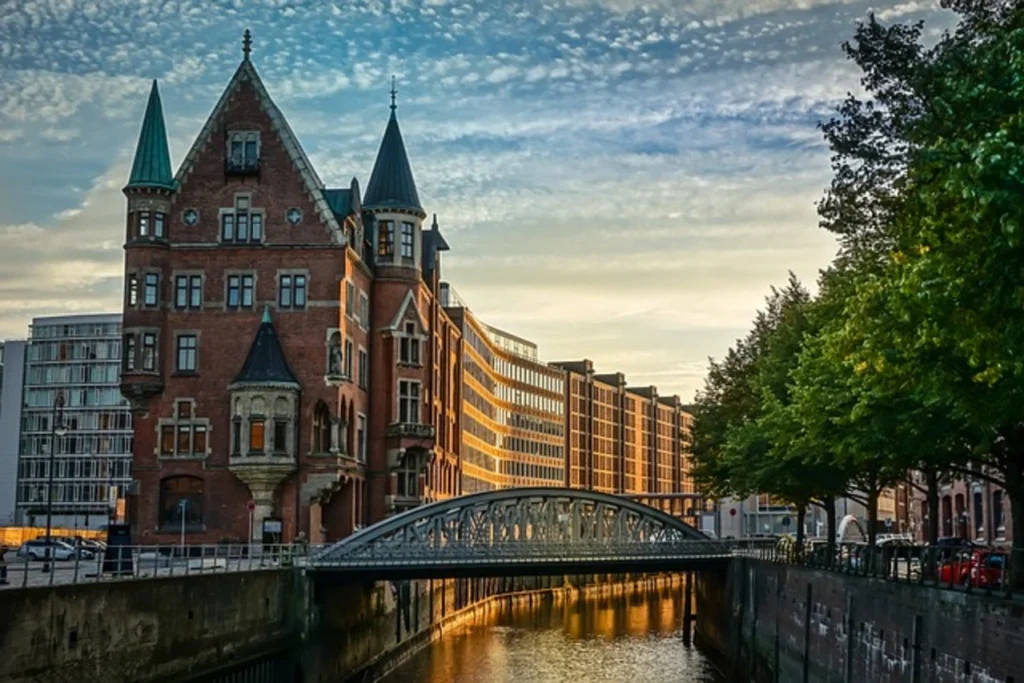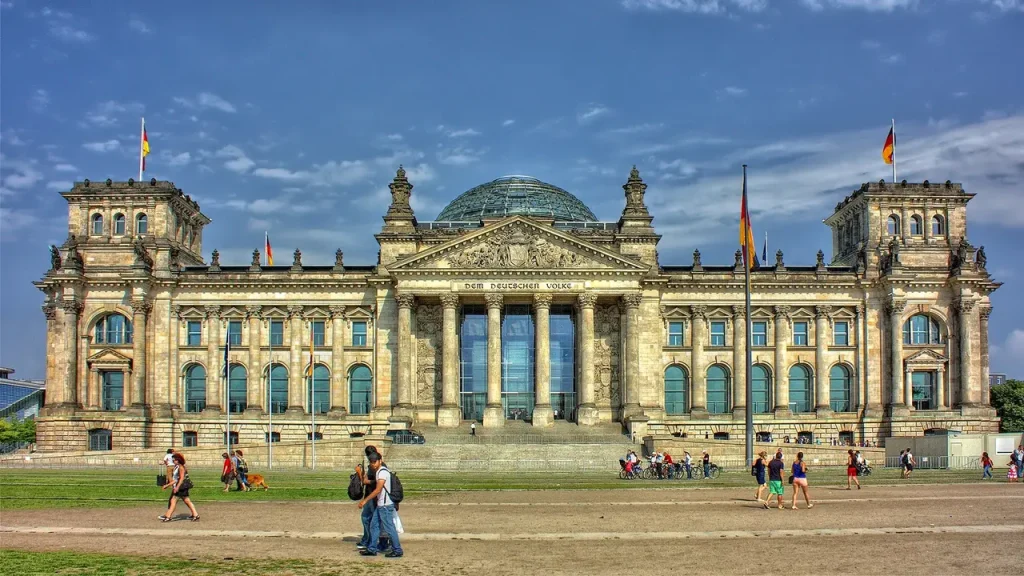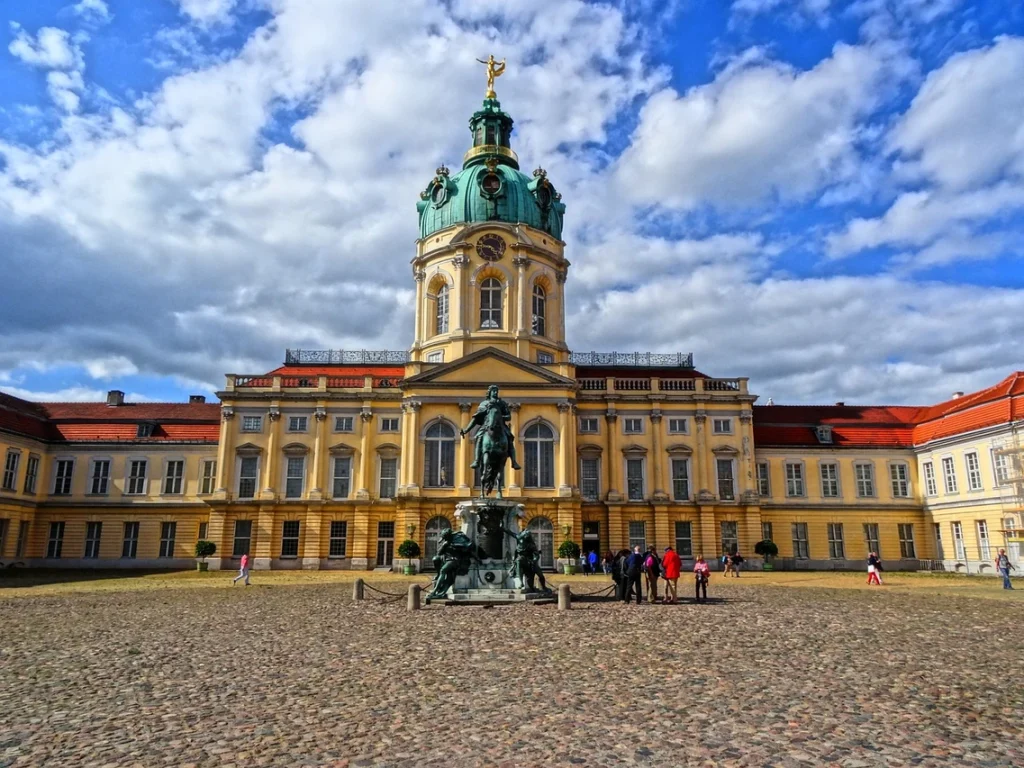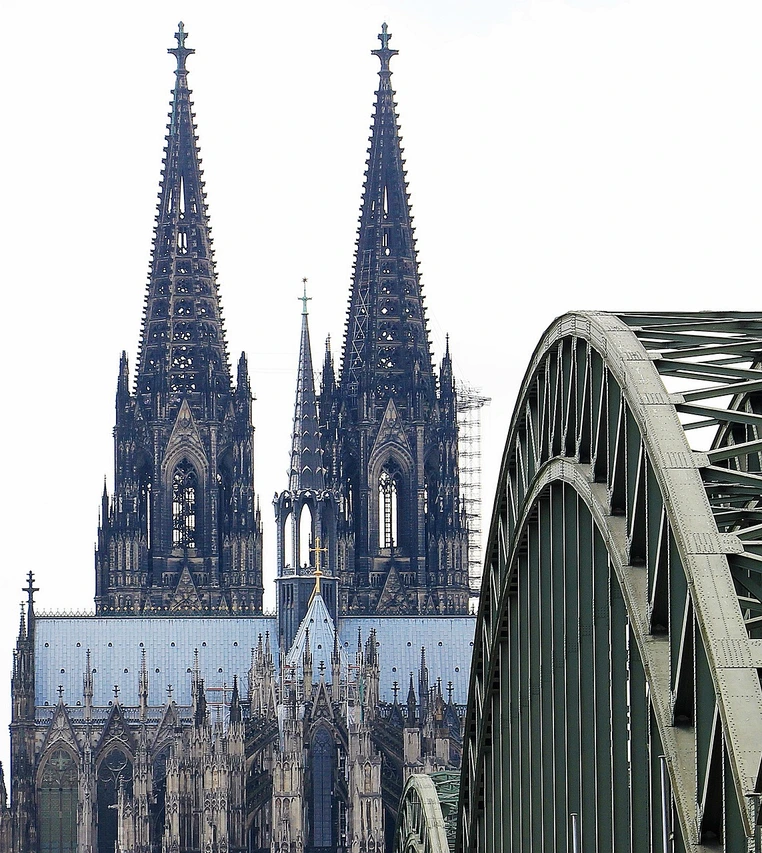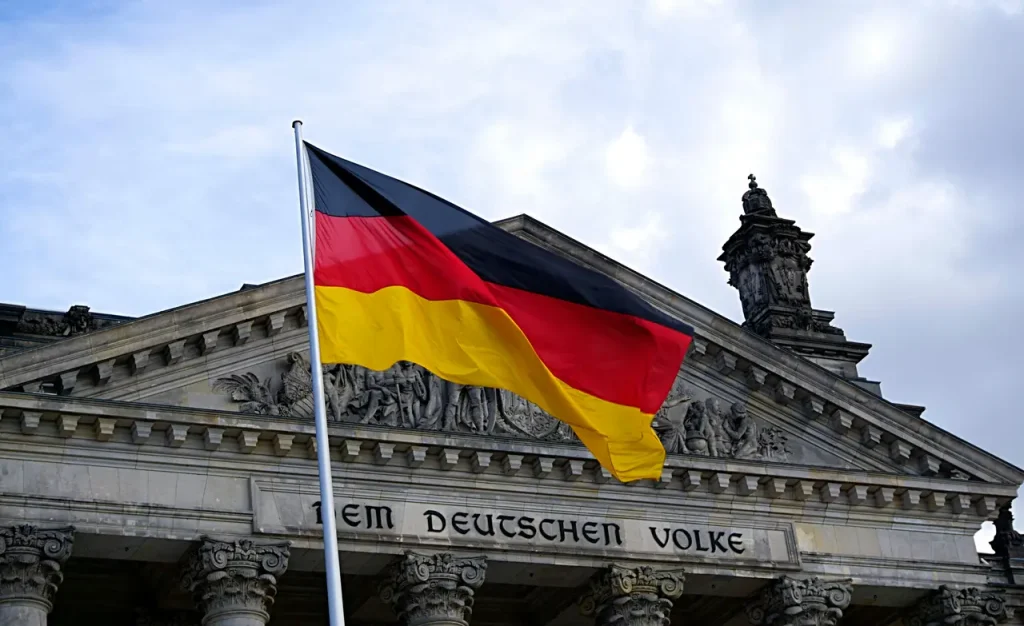WORK VISA GERMANY
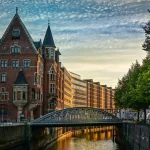






WORK IN GERMANY
Paving the Way: The Scope and Prospects of Working in Germany
Germany, a powerhouse in technology, engineering, and innovation, has become a magnet for professionals seeking both career opportunities and a high quality of life. In this blog, we will unravel the scope and prospects of working in Germany, shedding light on the various German work visas and the opportunities they offer for individuals looking to build a rewarding career in the heart of Europe.
Scope and Prospects of Working in Germany:
Germany’s robust job market spans various industries, including automotive, technology, finance, and healthcare. The country’s commitment to research and development, coupled with a strong economy, makes it an attractive destination for professionals globally. Working in Germany not only provides access to diverse career opportunities but also offers the chance to experience a rich cultural tapestry and an excellent standard of living.
Different German Work Visas:
To work in Germany, individuals typically require a work visa. There are several types of German work visas, each designed for specific purposes and categories of workers. Some of the most common ones include:
EU Blue Card: Designed for highly skilled non-EU workers, the EU Blue Card allows individuals to live and work in Germany. It is typically issued for a period of four years.
Skilled Workers Visa: This visa is for non-EU skilled workers with a recognized qualification and a job offer in Germany. It is often granted for up to six months to allow individuals to find employment.
Intra-Company Transfer Visa: For employees of multinational companies transferring to a German branch. It allows for temporary residence to work on a specific project or role.
Temporary German Worker Visas:
Apart from the above, there are temporary worker visas designed for specific industries or purposes:
Job Seeker Visa: Allows non-EU individuals to come to Germany for up to six months to seek employment. Once a job is secured, they can switch to a work visa.
Seasonal Worker Visa: For individuals working in seasonal jobs, particularly in agriculture.
Researcher Visa: For individuals engaging in research activities in Germany.
Employment in Germany: Key Considerations
Job Offer: Most German work visas require a job offer from a German employer. Employers may need to demonstrate that they cannot find a suitable German or EU citizen for the role.
Recognition of Qualifications: For certain professions, individuals may need to have their qualifications recognized by the relevant German authorities.
German Language Proficiency: While not always mandatory, having a good command of the German language can enhance job prospects and daily life in Germany.
Health Insurance: Individuals are required to have health insurance coverage in Germany.
Transition to Permanent Residency: Many temporary work visas in Germany offer pathways to permanent residency for skilled workers, providing long-term career prospects.
Working in Germany offers a blend of professional growth, cultural richness, and a high standard of living. Navigating the German work visa landscape requires careful consideration of qualifications, job prospects, and the specific visa category that aligns with career goals. As professionals embark on their journeys to work in the heart of Europe, the scope and prospects of a successful and fulfilling career in Germany unfold as a gateway to unparalleled professional growth and a life enriched by diverse experiences.
The Gateway to Excellence: Navigating the German Work Landscape – A Guide to Working in Germany
Germany, a powerhouse of innovation, culture, and economic strength, stands as an attractive destination for professionals seeking career advancement in a dynamic and technologically advanced environment. This blog explores the various facets of working in Germany, from the intricacies of obtaining a German work visa to the diverse employment landscape that awaits professionals in this European hub.
German Work Visas – A Passport to Opportunity:
1. Blue Card (EU Blue Card):
Overview: The Blue Card is designed for highly skilled non-EU professionals, offering a simplified entry process and access to the European labor market.
Key Features:
1. Requires a recognized university degree.
2. Facilitates permanent residence after a certain period of legal residence.
2. Employment Visa:
Overview: The Employment Visa is a general visa category for non-EU professionals seeking employment in Germany.
Key Features:
1. Covers a wide range of employment scenarios.
2. Often requires a job offer from a German employer.
3. Job Seeker Visa:
Overview: The Job Seeker Visa allows individuals to come to Germany and seek employment for a certain period.
Key Features:
1. Intended for qualified professionals looking for job opportunities.
2. Does not grant the right to work without finding a job.
4. Specialist Professional Work Visa:
Overview: This visa is tailored for individuals with specialized skills or expertise in certain sectors.
Key Features:
1. Targets professionals with specific technical or vocational qualifications.
2. Requires a job offer from a German employer.
Employment in Germany – The Landscape:
1. Engineering and Manufacturing:
1. Automotive Industry: Home to renowned brands like BMW, Mercedes-Benz, and Volkswagen, Germany offers opportunities for professionals in automotive engineering and manufacturing.
2. Precision Engineering: The country’s engineering sector is known for precision and innovation.
2. Information Technology (IT):
1. Tech Hubs: Cities like Berlin, Munich, and Frankfurt are emerging as tech hubs, providing opportunities in software development, artificial intelligence, and cybersecurity.
2. Start-up Culture: Germany fosters a vibrant start-up culture, attracting entrepreneurs and IT professionals.
3. Healthcare and Life Sciences:
1.Medical Research: Germany has a strong reputation for medical research and offers opportunities for professionals in the healthcare and life sciences sectors.
2. Pharmaceutical Industry: The country is home to major pharmaceutical companies, contributing to advancements in healthcare.
4. Renewable Energy:
1. Green Technology: Germany is a leader in renewable energy, creating opportunities in the field of sustainable technology and environmental engineering.
2. Wind and Solar Energy: The country has made significant investments in wind and solar energy projects.
Types of Visas for Temporary Employment:
1. Blue Card (EU Blue Card):
1. Highly Skilled Professionals: Geared towards non-EU professionals with recognized qualifications.
2. Simplified Entry: Streamlined application process for skilled workers.
2. Employment Visa:
1. General Work Authorization: Covers a broad range of professions and industries.
2. Job Offer Requirement: Often necessitates a job offer from a German employer.
3. Job Seeker Visa:
1. Job Hunting Period: Grants a limited period for job seekers to find employment.
2. Transition to Work Visa: Can be converted into an Employment Visa upon securing a job.
4. Specialist Professional Work Visa:
1. Specialized Skills: Tailored for individuals with specific technical or vocational qualifications.
2. Industry-Specific: Focuses on professionals needed in particular sectors.
Conclusion:
Working in Germany is not just a career move; it’s an immersive experience in a country that values innovation, precision, and excellence. The journey to obtain a German work visa opens doors to a landscape where technological advancement meets cultural richness. As professionals contribute their skills to Germany’s thriving economy, they become part of a nation known for its efficiency, engineering prowess, and commitment to progress. The pursuit of a German work visa is a strategic step toward a future where personal and professional aspirations align harmoniously in the heart of Europe.
Enchanting Vistas and Economic Excellence: The Splendors of Germany and the Commercial Advantages of a German Work Visa
Germany, a land of historic charm, cultural richness, and economic vitality, beckons professionals with a promise of not just career opportunities but also a high quality of life surrounded by scenic wonders. In this blog, we will delve into the enchanting landscapes of Germany, from the fairytale castles of Bavaria to the picturesque vineyards along the Rhine, and explore the commercial advantages that come with obtaining a German work visa.
Germany’s Natural Elegance:
1. Bavarian Alps – Alpine Majesty:
Neuschwanstein Castle: Nestled in the Bavarian Alps, the fairytale-like Neuschwanstein Castle offers breathtaking views of mountainous landscapes and lush green meadows.
2. Rhine Valley – Vineyard Beauty:
Vineyard Terraces: The Rhine Valley, a UNESCO World Heritage site, is adorned with charming vineyards, medieval castles, and the meandering Rhine River.
3. Black Forest – Evergreen Serenity:
Cuckoo Clock Villages: The Black Forest, with its dense evergreen forests and charming villages, is not just a scenic delight but also a cultural experience.
4. Baltic Sea Coast – Coastal Tranquility:
Amber Beaches: The Baltic Sea Coast boasts serene beaches, charming seaside towns, and the unique allure of amber washing ashore.
5. Lake Constance – Lakeside Bliss:
Island of Mainau: Lake Constance, shared by Germany, Austria, and Switzerland, features the enchanting Island of Mainau with its vibrant flower gardens.
Commercial Advantages of a German Work Visa:
1. Blue Card (EU Blue Card):
Access to European Labor Market: The Blue Card facilitates entry into the European labor market, allowing highly skilled non-EU professionals to contribute to Germany’s economic excellence.
2. Employment Visa:
Diverse Work Opportunities: The Employment Visa opens doors to a wide range of professions, from engineering and IT to healthcare and finance, aligning with Germany’s diverse and robust economy.
3. Job Seeker Visa:
Job Hunting Flexibility: The Job Seeker Visa provides a dedicated period for professionals to explore job opportunities in Germany, fostering a seamless transition into the workforce.
4. Specialist Professional Work Visa:
Expertise in Demand: Tailored for individuals with specialized skills, this visa reflects Germany’s commitment to attracting professionals in fields crucial for economic development.
Additional Commercial Advantages:
1. Engineering and Manufacturing Hub:
1. Automotive Excellence: Germany’s automotive industry, home to iconic brands like Mercedes-Benz and BMW, offers opportunities in engineering, manufacturing, and research.
2. Precision Engineering: Renowned for precision and quality, German engineering is sought after globally.
2. Technological Innovation:
1. Digital Transformation: As a global technology leader, Germany provides a fertile ground for professionals in IT, software development, and innovation.
2. Research and Development: The country invests significantly in R&D, encouraging advancements in science and technology.
3. Finance and Business Services:
1. Financial Powerhouse: Cities like Frankfurt and Munich are financial hubs, offering opportunities in banking, finance, and business services.
2. Corporate Headquarters: Many multinational corporations choose Germany as their European headquarters.
4. Sustainable Development:
1. Renewable Energy Leadership: Germany is a pioneer in renewable energy, creating opportunities in sustainable technology and environmental engineering.
2. Green Initiatives: The commitment to sustainability is reflected in policies and practices across industries.
Conclusion:
Working in Germany transcends professional growth; it’s an immersion into a country that seamlessly blends economic excellence with the tranquility of its natural landscapes. The journey to obtain a German work visa opens the door to a nation that values innovation, precision, and a high quality of life. As professionals contribute their skills to Germany’s diverse and dynamic economy, they become part of a society that cherishes both economic prosperity and the beauty of its surroundings. The pursuit of a German work visa is an invitation to experience a harmonious blend of career success and the enchanting allure of one of Europe’s most captivating countries.

